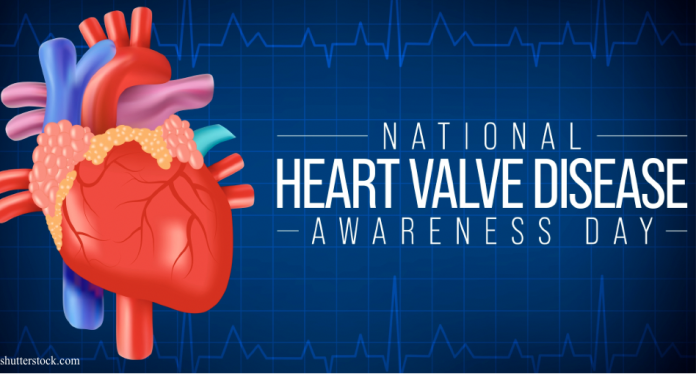WASHINGTON, February 12, 2025 /PRNewswire/ — February is American Heart Month, a time to raise awareness of heart conditions and heart-healthy lifestyles. Led by the Alliance for Aging Research, on February 22, organizations, advocates, and individuals across the globe will mark Heart Valve Disease Awareness Day by joining together to increase recognition of the risks of heart valve disease and improve detection and treatment access to ultimately save lives.
“People in communities of color tend to develop valve disease at a younger age and should be screened sooner.”
“Age is the biggest risk factor for heart valve disease, so it’s important for those over 65 especially, to get their heart listened to by a medical professional who can detect a murmur and order additional tests, if necessary,” says Dr. John Whyte, Chief Medical Officer for WebMD and a Board Member for the Alliance for Aging Research.
Heart valve disease occurs when one or more of the heart’s four valves is defective or damaged, interrupting blood flow and often causing serious complications, including death. More than 11 million Americans have heart valve disease. More than 25,000 deaths are attributed to valve disease in the U.S. each year.
Symptoms can include lightheadedness or fainting, irregular or fluttering heart or chest pain, tiredness, edema, and feeling off in general or missing out on daily activities.
Heart murmurs—or irregular heart sounds that are common with valve disease—can usually be detected through a simple stethoscope check. If a murmur is detected, additional tests such as an EKG, ECG, chest X-ray, or MRI can diagnose valve disease.
One in 10 people age 75 and older are estimated to have moderate or severe heart valve disease, making age the greatest risk factor. Other cardiovascular diseases and conditions such as previous heart attack, hypertension, and high cholesterol, diabetes, treatments for certain types of cancer, congenital abnormalities increase risk.
“People in communities of color tend to develop heart valve disease at a younger age and should be screened sooner due to this higher risk,” says Dr. Whyte.
To learn more about heart valve disease or how to get involved in educating others, visit www.ValveDiseaseDay.org.
About the Alliance for Aging Research
Since 1986, the Alliance for Aging Research has served as a trusted source of health information for both consumers and healthcare professionals on diseases and conditions that disproportionately affect older adults and has led numerous successful advocacy campaigns promoting the health and independence of older adults. Recognizing the seriousness of heart valve disease and the fact that disease symptoms are often difficult to detect or dismissed as a normal part of aging, the Alliance is leading this effort to raise awareness through Heart Valve Disease Awareness Day.
Learn more about the Alliance at www.agingresearch.org.


